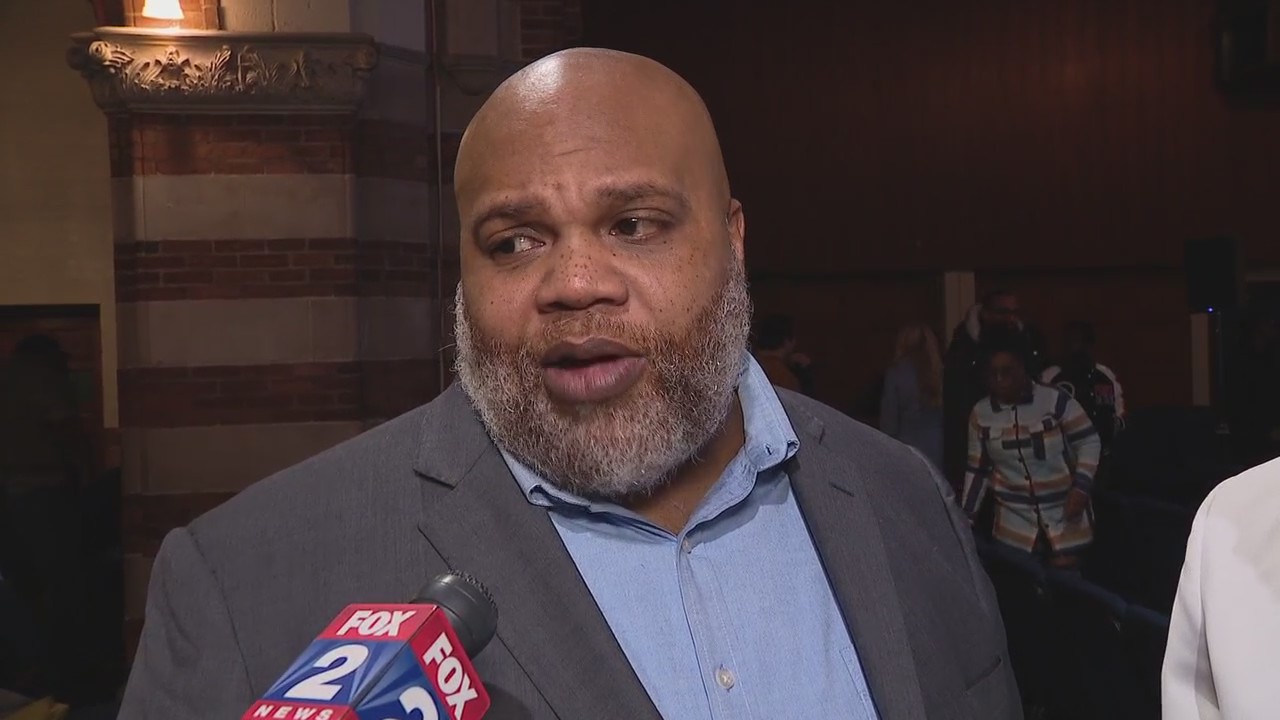Detroit's ShotStopper groups mark dramatic drop in shootings for past quarter

Mayor Duggan talks ShotStopper success in Detroit violent crime reduction
Mayor Mike Duggan and two grass roots groups from the ShotStopper program - Negas Vu of the People's Community and Ray Winans of Friends and Family talk about the program.
DETROIT (FOX 2) - Crime prevention in the City of Detroit is working thanks to the ShotStoppers program, Mayor Mike Duggan announced Monday.
In the last year homicides in Detroit dropped 45 percent in the ShotStopper zones using community violence intervention groups and 18 percent in the rest of the city.
The CVI program began in July of 2023 with six neighborhood nonprofits and a $10 million pilot program. Each contracted group is responsible for improving the quality in a three to five quare mile area — receiving $175,000 each, funded federally.
"The idea that you would have trusted members of the community who had authentic relationships who would intervene and change decision-making ahead of shootings," Duggan said. "That's where we make the city safer is when we get people to make safer decisions and not pick up the gun in the first place."
Results were shared from the past quarter - August through October, known to typically have the highest shooting numbers.
In the last quarter, non-CVI zones saw a 35 percent drop in shootings, while:
- Detroit Friends and Family cut shootings by an 83 percent reduction in the Moross, Kelly and Harper Avenue area on the east side.
- People's Community cut shootings by a 73 percent reduction in the Henry Ford High School area.
- Wayne Metro cut shootings by a 61 percent reduction in the Denby area on the east side.
- Force Detroit cut shootings by 52 percent in the Warrendale area on the west side.
- Detroit 300 cut shootings 47 percent at Five Mile and Southfield.
- New Era Detroit helped cut shootings 37 percent in the area of Six Mile and Schaefer.
The CVI program began in July of 2023 with six neighborhood nonprofits and a $10 million pilot program. Each contracted group is responsible for improving the quality in a three to five quare mile area — receiving $175,000 each, funded federally.
"I am really proud to say that our six (Civilian Violence Intervention) groups - every single one of them beat the city-wide average in violence," he said. "This is not a coincidence. This is proof - these folks in schools, neighborhoods in hard conversations every single day is changing the paths of young people."
The program focused on 25 square miles with the highest violent crime allowing groups to develop their own strategy. Each week, those groups got report cards on shootings in their area, compared to the rest of the state. If a group was 10 percent more successful in reducing violence than the city over the course of a quarter, they’ll receive an $87,500 bonus or a $175,000 bonus for a 20 percent improvement.

Detroit community violence intervention programs praised for crime reduction
The past three months - usually known as the most violent of the year in Detroit - has seen a big reduction in shooting thanks to the city's ShotStopper program.
"The first year was a learning curve, this year is implentation and execution," said Negas Vu of The People's Community. "This is a testament to the great works of CVI. We have people in the community doing their due dilligence showing love and communicating, working doing their best to bring change in the schools, in the neighborhoods in their homes."
Duggan credited former Deputy Mayor, now DPD Chief Todd Bettison for spearheading the program.
"Our CVI groups really get along with our police department," Bettison said, adding in some cities that isn't the case. "We have the secret recipe in the City of Detroit and it is real collaboration and intentional community focus and engagement."

Negas Vu, community leader of the nonprofit The People's Community.

